On April 20, 1824, Thomas J. Rogers (DR) of Pennsylvania's 8th district resigned, leaving a vacancy which was filled by a special election on October 12, 1824, the same day as the general election for the 19th Congress.
| Elections in Pennsylvania |
|---|
 |
On April 20, 1824, Thomas J. Rogers (DR) of Pennsylvania's 8th district resigned, leaving a vacancy which was filled by a special election on October 12, 1824, the same day as the general election for the 19th Congress.
| Candidate | Party | Votes [1] | Percent |
|---|---|---|---|
| George Wolf | Democratic-Republican | 4,765 | 100% |
Wolf ran unopposed. He also won the same seat in the 19th Congress.
Nathan Sanford was an American politician.
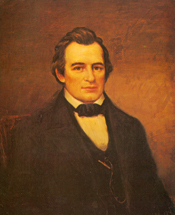
Elections to the United States House of Representatives for the 26th Congress were held during President Martin Van Buren's term at various dates in different states from July 1838 to November 1839.
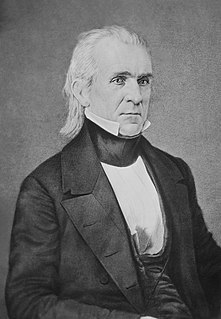
Elections to the United States House of Representatives for the 25th Congress were held at various dates in different states from July 1836 to November 1837.

Elections to the United States House of Representatives for the 24th Congress were held in 1834 and 1835 during Andrew Jackson's second term as President of the United States.
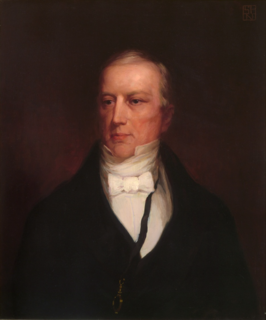
In the United States House of Representatives elections of 1830 the supporters of President Andrew Jackson lost ten seats during his first term, but managed to maintain control of the chamber amidst the growth of two new opposition movements.

In the United States House of Representatives elections in 1828 and 1829, the Jacksonians soundly took control of the presidency, with Andrew Jackson's victory, and greatly increased their majority in Congress. Outgoing President John Quincy Adams's unpopularity played a major role in the Jacksonian pick-up, as did the perception of the Anti-Jacksonian Party as urban and elitist. Major increases in suffrage also heightened Jacksonian wins, as newly enfranchised voters tended to associate with Jacksonian principles. The Anti-Masonic Party, a single issue faction based on distrust of Freemasonry, became the first third party in American history to garner seats in the House.

Elections to the United States House of Representatives for the 20th Congress were held at various dates in each state in 1826 and 1827 during John Quincy Adams's presidency.
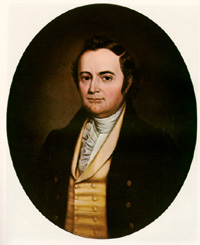
Elections to the United States House of Representatives for the 19th Congress were held at various dates in different states between July 1824 and August 1825, coinciding with the contentious 1824 Presidential election. After no Presidential candidate won an electoral majority, in February 1825 the House of the outgoing 18th Congress chose the President in a contingent election.
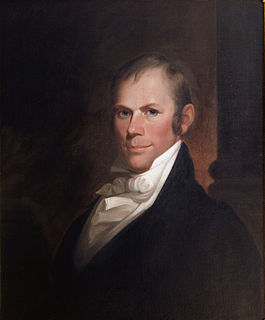
Elections to the United States House of Representatives for the 18th Congress were held at various dates in different states between July 1822 and August 1823 during President James Monroe's second term.
The United States Senate elections of 1826 and 1827 were elections that had the majority Jacksonians gain a seat in the United States Senate.

The 1824 United States House of Representatives elections in New York were held from November 1 to 3, 1824, to elect 34 U.S. Representatives to represent the State of New York in the United States House of Representatives of the 19th United States Congress.

The 1826 United States House of Representatives elections in New York were held from November 6 to 8, 1826, to elect 34 U.S. Representatives to represent the State of New York in the United States House of Representatives of the 20th United States Congress.

Pennsylvania elected its members October 12, 1824.
The United States Senate elections of 1822 and 1823 were elections for the United States Senate that had the Democratic-Republican Party continue almost complete control of the Senate.
The United States Senate elections of 1824 and 1825 were elections for the United States Senate that saw the Jacksonians gain a majority over the Anti-Jacksonian National Republican Party.

On September 8, 1824, William Prince (DR-Jackson), of Indiana's 1st district died. A special election was held to fill the vacancy left in Indiana's congressional representation by his death
On October 15, 1824, Charles Rich of Vermont's at-large district died in office. A special election was held for his replacement.

In June 1824, John Tod (DR) of Pennsylvania's 13th district resigned. A special election was held to fill the resulting vacancy on October 12, 1824, the same day as the elections to the 19th Congress
A special election was held in Massachusetts's 10th congressional district on September 8, 1823 to fill a vacancy created by the resignation of William Eustis (DR) prior to the start of the 18th Congress.

A special election was held in Georgia's 1st congressional district on October 1, 1827 to fill a vacancy left by the resignation of Edward F. Tattnall (J) prior to the start of the 20th Congress.